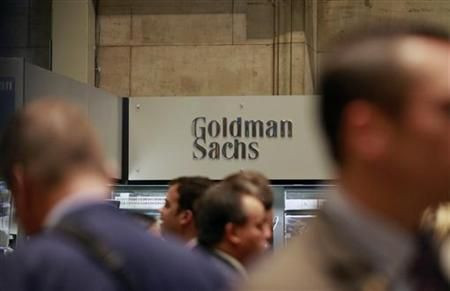European Crisis Will Deteriorate, Oil Will Soar in 2012: Goldman Sachs
Report on Top 6 Trading Strategies for Next Year Also Assumes Active Central Banks in Switzerland, China

Goldman Sachs (NYSE: GS) says it is betting the situation in Europe will deteriorate next year, eventually affecting the still-strong German economic engine and prompting a new wave of fears European companies will default on their bonds.
This prediction comes from a research note to investors sent out yesterday, where the bank sketched out its six top trade strategies for 2012. Among other forecasts: oil will rise by nearly 10%, the Swiss National Bank will aggressively devalue the Swiss franc and central banks overseeing relatively booming Asian economies will use monetary policy to address inflation.
“The ongoing shocks from the region’s sovereign crisis -- and policy responses to them -- are likely to be the biggest determinant of the outlook over the next few months,” Dominic Wilson and Jan Hatzius, economists at Goldman Sachs, wrote in the research note, according to Bloomberg News.
Indeed, the belief that the Eurozone crisis will continue is behind what the investment bank noted as it two top trades -- bet on insurance against default of European corporate junk bonds, and short (or bet against) the ten-year German government bond.
Such bets would work if the current crisis drags Europe, and particularly Germany, deeper into recession. But the second bet makes an assumption that Germany will continue to bail out the weaker European economies, a politically dicey assessment.
A view that energy commodities will continue to rise was also notable in the report under its #6 recommendation, which sets a target of $120 for July delivery of a Brent crude barrel (Brent oil for spot delivery was trading in a range near $111 a barrel today). That belief also leads to Goldman’s #4 recommendation: buy into the Canadian equity market.
Goldman’s prediction of rising oil prices could actually be considered conservative. Earlier this week, large asset manager PIMCO set out a set of scenarios for oil prices in the eventuality that Iran was attacked by a Western power sometime next year. The predictions ranged from $140 if only minimal disruptions occurred to an unpriced “Doomsday scenario” if key naval crossings were targeted or blockaded.
Finally, Goldman said it was putting its money on central bankers in both Europe and Asia aggressively manipulating the currency next year. It’s #3 trade recommendation, buy euro-to-swiss franc swaps, is based on the assumption central bankers in Switzerland will print large amounts of money in order to maintain the franc-to-euro exchange rate over the bank’s previously-stated target of 1.20 franc. On Thursday, that rate was 1.2272; Goldman sees it going to 1.35.
The #5 recommendation, also foreign-exchange related, sees Chinese and Malaysian central bankers continuing to allow their currency to appreciate against those of the U.S. and Great Britain.
Shares of Goldman Sachs Group, Inc. were selling for $93.59 during mid-morning trading in the New York Stock Exchange, down $2.27 or 2.37 percent less than the previous day’s close, in line with percentage changes for shares of other large American banks Thursday.
© Copyright IBTimes 2024. All rights reserved.





















